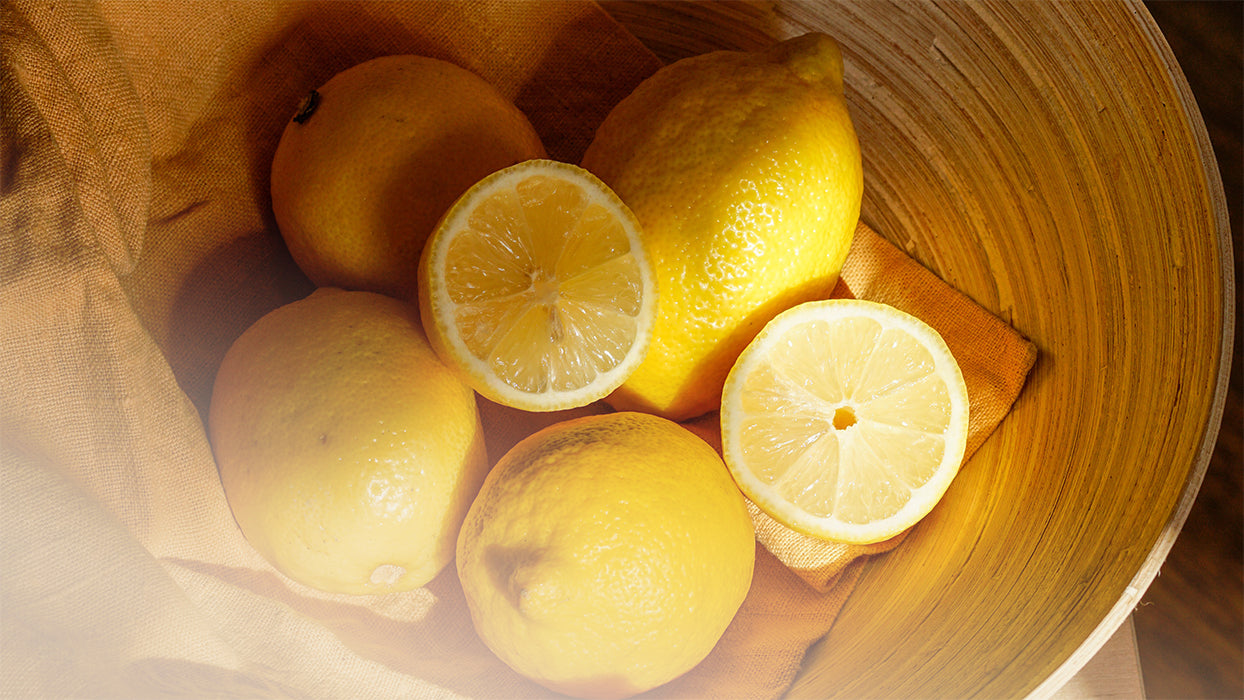
By Merle von KOMBUCHERY
Strengthen the immune system - 6 tips for your defense
Strengthen your defenses for the winter
Our immune system doesn't have it easy again this winter. Influenza, colds and new viruses challenge the immune system. With these 6 tips you can strengthen your immune system.
A strengthened immune system usually copes well with attacks from the environment. If it is weakened, it is easy for pollutants and toxins, viruses and bacteria to penetrate the body from the outside. People with weak immune systems are therefore more susceptible to infections and colds. The human immune system is divided into an innate and an acquired one. Lymphocytes play an important role in the immune system. Specifically, the so-called B cells and T cells. B lymphocytes develop antibodies against bacteria and viruses. They can even recognize the respective germ at a later point in time through the development of memory cells. T lymphocytes are proactive and kill pathogens and support immune cells. The older we get, the fewer B and T cells our body produces. A healthy lifestyle and diet can help slow down the steady decline. What else can you do to strengthen your immune system? 6 simple tips to help your body fight bacteria and viruses faster!1. Vitamin D
Vitamins cannot be produced in our body at all or only insufficiently. For this reason, the chemical compounds must be supplied regularly from the outside, for example through food. Vitamin D is a very special vitamin because it is produced in the skin by the body's own synthesis with the help of sunlight. Cholesterol is converted into provitamin D. Vitamin D supports the normal functions of the immune system on a large scale, for example by strengthening the T-cells mentioned above. A lack of vitamin D weakens the immune system. Especially in the dark season, you should go into the sun 3 to 4 times a week for about 30 minutes . If this is too time-consuming for you, you can also supply the body with vitamin D in the form of high-quality supplements.

2. Avoid stress and get enough sleep
Stressful situations that last for a long time can have negative effects on our health. It doesn't matter whether it's stress at work, in the family or the repression of traumatic events. In an acute stressful situation, the body uses all its energy to fight it. Because stress means for him there is great danger lurking. The T-cells are particularly stressed and the immune system is weakened. In addition, intense stress encourages the consumption of more vitamin C, which in turn can lead to a deficiency. Sleep also influences the T cells and the immune system. The more you sleep and the more regular your sleep is, the better for your health.So try in your everyday life:
1. Avoiding constant stress2. Improve sleep with:
- fixed sleep-wake times
- reduce caffeine
- don't eat too late before bed
- Avoid the light from your smartphone and laptop before you go to bed

3. Healthy eating
A varied, balanced diet with lots of fresh fruit and vegetables is crucial for a healthy lifestyle. About 70 percent of all immune cells are located in the gut, so it is all the more important to provide it with food rich in fiber and to promote the diversity of the microbiome.
Tips for a strong immune system:
- Eat mostly plant-based
- Foods with bitter substances such as rocket, chicory,
Artichokes, Brussels sprouts, savoy cabbage, coriander, sage, dandelion -
Pre- and Probiotics – Certain Vegetables, Kombucha,
Sauerkraut, yoghurt, water kefir - Drink enough water - 30 ml of liquid per kilogram
body weight per day - Avoid fast food
- Healthy fats and proteins
- Rice, bread, pasta in the whole grain variety
- Avoid too much salt and spices like turmeric and ginger
use more

4. Moderate exercise
Regular exercise in the form of light physical activities also strengthens the immune system . It is important to pay attention to the type and duration of the sport. Too much exercise can even put a strain on the immune system. Adrenaline is released when you exercise. This leads to active defense cells that multiply faster. White blood cells and lymphocytes are then present in the blood in excess. If the adrenaline drops again after sport, the activated defense cells also drop. But that's not bad at all, because the short-term activation alone helps the cells to act faster in a real emergency and to react to bacteria and viruses.
We recommend endurance sports such as light jogging, swimming or cycling. But a relaxed yoga or Pilates unit also activates the immune cells.

5. Vitamin C
Vitamin C, also known as ascorbic acid, is an essential vitamin in actively supporting the immune system. Our body cannot produce the vitamin on its own and has to absorb it through food. An adult human should consume about 100 mg of vitamin C with food per day. This corresponds to about 100 g of raw broccoli. Vitamin C is actively involved in defense against bacteria, viruses and other pathogens. It enriches the leukocytes and activates the T-cells.Vitamin C is found in high levels in various types of vegetables, for example:
- Red pepper
- Brussels sprouts
- Kale
- broccoli
- cauliflower
- Kohlrabi
- Red cabbage
- spinach
The vegetables should only be cooked briefly so that the vitamins are not destroyed by the heat.

6. Sauna and contrast baths
The immune system can be trained with regular saunas or contrast showers. Above all, the recovery effect and the resulting avoidance of stress can help the body to be prepared for challenging times.






